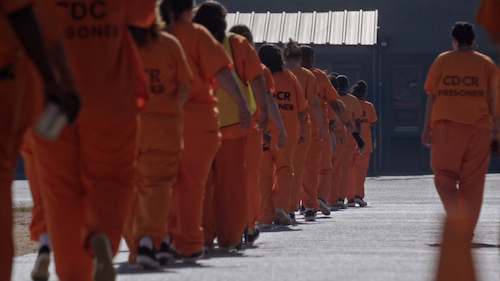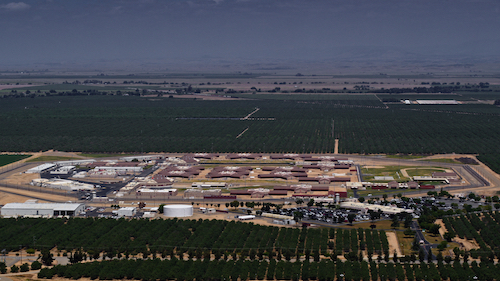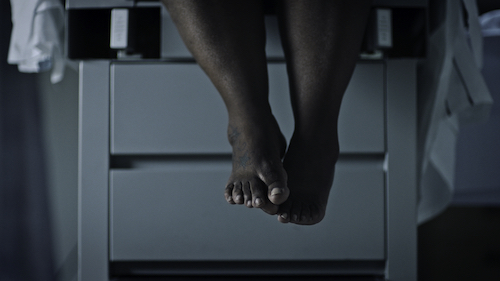Communiqué
Documentary Uncovers Reproductive and Human Right Violations; “Belly of the Beast” on INDEPENDENT LENS. Nov. 23 at 10pm
< < Back toINDEPENDENT LENS PREMIERES HUMAN RIGHTS WATCH FILM FESTIVAL FAVORITE BELLY OF THE BEAST NOVEMBER 23, 2020 ON PBS AND PBS VIDEO APP
Investigative Documentary Uncovers Reproductive and Human Right Violations Happening In the World’s Largest Women’s Prison
Featuring An Original Song by Nine-Time Grammy Winner Mary J. Blige

Nearly forty years after being banned, a pattern of illegal sterilizations in America’s women’s prisons has continued undetected, shielded by prison officials and doctors inside the correctional system. From Emmy and Peabody Award-winning director and producer Erika Cohn, Belly of the Beast exposes modern-day eugenics and reproductive injustice in California prisons, through intimate accounts from currently and formerly incarcerated people filmed over the course of seven years.
An opening night selection of this year’s Human Rights Watch Film Festival, Belly of the Beast will make its broadcast premiere on Independent Lens on Monday, November 23, 2020 at 10:00 p.m. on PBS and the PBS Video App.
At the Central California Women’s Facility, the world’s largest women’s prison, a young woman named Kelli Dillon, who was involuntarily sterilized at the age of 24 while incarcerated, teams up with Cynthia Chandler, a human rights lawyer, to fight for reproductive justice. As they prepare to take Kelli’s case to court with the help of Chandler’s activist organization Justice Now, they uncover a wide range of crimes occurring within the facility—from inadequate access to healthcare to sexual assault to illegal sterilization—the latter largely perpetrated against the facility’s Black and Latinx populations.

While prison doctors and officials contend that these sterilizations were in each person’s best interest and an overall social benefit, Chandler and Dillon call into question how these procedures continued for so long after being banned in California since 1979. Their joint efforts in exposing the atrocities carried out behind closed doors ultimately shed new, timely light on the systemic racism and violence impacting people of color in women’s prisons, as activists and allies take to the courtroom to fight for reparations and some semblance of justice.
“I hope Belly of the Beast serves as a catalyst for exposing modern-day eugenics and call attention to other abuses within our criminal justice system. I believe if we hold our institutions and state actors who have committed these harms accountable, we can prevent future abuses from happening,” said Cohn. “With our public broadcast on PBS via Independent Lens, I am grateful the film will be accessible to those inside prisons today — these are their stories first and foremost, and we want to honor them and do everything we can to ensure this film reaches incarcerated audiences too.”
The film also features a new original song from the nine-time Grammy winning and two-time Oscar nominated singer-songwriter Mary J. Blige, titled “See What You’ve Done.”

“I was moved by Erika Cohn’s important documentary Belly of the Beast. I immediately knew I wanted to be involved and was inspired to write a song that would amplify the voices of women in prison,” said Blige. “‘See What You’ve Done’ is a testimony, a call to be strong, and an anthem for a movement.”
Visit the Belly of the Beast page on Independent Lens for more information about the film.

